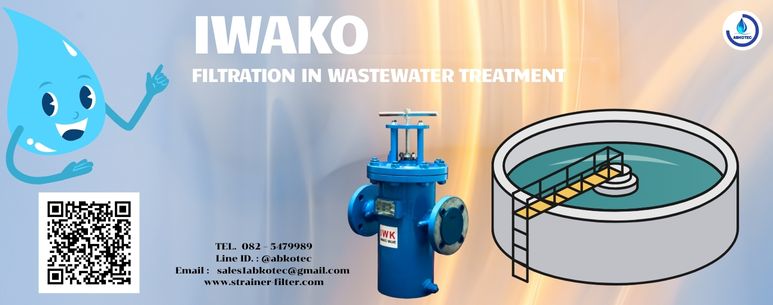Automatic Backwash Strainer Filter, Automatic Self Cleaning Strainer Filter, Basket Strainer, Hydrocyclone Separator Filter, Manual Brush Strainer Filter
Filtration in Wastewater Treatment
Filtration in Wastewater Treatment
What is the purpose of filtration in wastewater treatment? : The purpose of filtration in wastewater treatment is to improve water quality by removing suspended solids, contaminants, and impurities, ensuring the treated water meets environmental and regulatory standards. Filtration is a critical step in both primary and advanced wastewater treatment processes. Here’s a breakdown of its key roles:
1. Removal of Suspended Solids
- Filtration eliminates particles like silt, sand, organic matter, and debris that remain in the water after initial sedimentation.
- Reduces turbidity, making the water clearer and suitable for further treatment or discharge.
2. Protection of Downstream Processes
- Prevents clogging and fouling of downstream equipment like pumps, membranes, and disinfection systems.
- Enhances the efficiency of secondary and tertiary treatment steps, such as biological treatment or reverse osmosis.
3. Biological Contaminant Reduction
- Advanced filters can remove microorganisms, bacteria, and algae, contributing to pathogen control.
- Supports disinfection processes like chlorination or UV treatment by reducing the microbial load.
4. Nutrient and Chemical Removal
- In specialized systems, filtration aids in the removal of nutrients like phosphorus and nitrogen, which contribute to water pollution and algal blooms in natural water bodies.
- Helps reduce chemical residues from industrial wastewater.
5. Reuse and Recycling of Water
- Filtration improves water quality to the level required for reuse in irrigation, industrial processes, or even potable applications in advanced systems.
- Plays a key role in achieving sustainable water management by reducing freshwater consumption.
6. Compliance with Environmental Regulations
- Ensures that treated wastewater discharged into natural water bodies complies with strict regulatory limits on solids, turbidity, and contaminants.
- Protects aquatic ecosystems and prevents pollution of rivers, lakes, and oceans.
7. Enhancing System Efficiency
- By removing solids early, filtration reduces the load on biological treatment units and other advanced processes, improving overall system efficiency and reducing operational costs.
Conclusion : Filtration in wastewater treatment is vital for removing impurities, protecting equipment, and achieving clean, safe water for discharge or reuse. It is an indispensable process that enhances the efficiency and sustainability of wastewater treatment systems.
At ABKO TEC, we specialize in supplying a wide range of high-quality filtration products for industrial applications, including: Basket Strainer , Handle Wheel Washing Basket Strainer , Automatic Basket Strainer , Automatic Backwash Strainer , Duplex Basket Strainer , Automatic Strainer Machine , Automatic Strainer Self-Cleaning , Automatic Self-Cleaning Water Filters, Automatic Backwash Drain Filter, Automatic Backwashing Strainer , Automatic Backflush Strainer , Automatic Water Strainer , Hydrocyclone Separator Filter , T Strainer Filter , Y Strainer and Temporary filter.
Let me know if you’d like details about specific filtration technologies used in wastewater treatment!
ABKOTEC
TEL. 082 – 547 9989
Email : piyaabkotec@gmail.com ,sales1abkotec@gmail.com
Line ID. : @abkotec
Facebook.com/Strainer Filter Industrial

